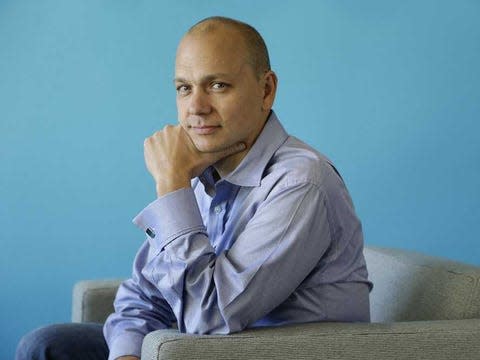How Companies Like Fitbit And Nest Could Make Money Off Your Data

AP Photo/Marcio Jose Sanchez
Companies like Fitbit and Nest Labs have realized there's a lucrative business in selling the data collected by wearable devices and smart home automation devices.
The technology can be used for much more than turning down the temperature in your home or tracking how many calories you've burned today.
It can be utilized to address larger problems involving health care and power consumption, as Forbes details in a new report.
Nest Labs, for instance, has built a secondary business in working with electric companies to manage power consumption in the homes of some of its users, Forbes reported. Nest has already partnered with utility providers such as Chicago's ComEdison and Southern California's Edison, but striking deals with utilities is still a challenge since Nest is only in less than 1 percent of US households.
These results of these partnerships could allow utilities to reimburse Nest users for lowering their air conditioners on a hot day to relieve some load from the grid, according to Forbes. The advantage of using a smart home thermostat like Nest as opposed to a standard system is that the device would be able to detect movement and learns about your household's activity over time, which could cut down on energy consumption. This, as Forbes notes, is crucial in convincing utilities to partner with Nest.
Nest co-founder Matt Rogers stressed that despite these partnerships, utility companies will never have control over your living room.
"We don't let utilities control the thermostat," he said to Forbes. "We don't share the data with the utility. We won't work with them if they don't agree."
Fitbit, on the other hand, is working with employers to aid in corporate wellness programs. Fitbit sells its devices to thousands of employers, and the data collected from those gadgets may eventually impact group insurance pricing, health insurer Cigna said to Forbes. Fitbit CEO James Park said it's one of the fastest-growing parts of the company's business.
Fitbit's corporate solutions website advertises its wellness program as a means of decreasing sick days and healthcare costs.
Forbes reports that Jawbone may consider starting a similar program in the future. The company's vice president of product management Travis Bogart told the publication that it will "definitely be about the data as we move forward."
Jawbone could even possibly one-up Fitbit by offering custom analytics software for employers, according to Forbes report.
The idea of your employer watching how active you are may seem invasive for some, but it depends on whether consumers believe less expensive healthcare will be worth sharing that type of information.
It will probably be quite some time before most companies equip their employees with fitness bands and your electricity bill decreases from using Nest in your home. However, the fact that these partnerships are already starting to develop shows that the data obtained by these types of gadgets could even be more valuable than the products themselves.
More From Business Insider

 Yahoo Finance
Yahoo Finance 
